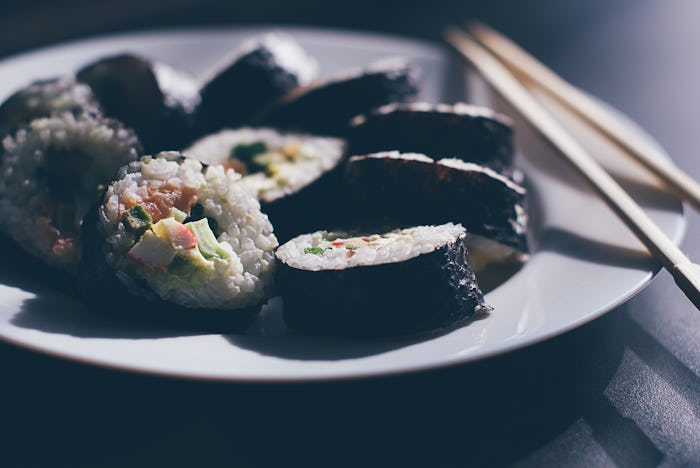Sushi is a beloved Japanese dish that many women avoid during pregnancy and crave after they give birth. Sushi can be completely vegetarian and therefore pose no or little risk. But the majority of sushi dishes are made with raw fish and often carry the risk of having bacteria or parasites, even from reputable places. If you're a woman that loves sushi and are nursing you might be wondering can I eat sushi while breastfeeding?
According to the Baby Center, when you're pregnant there's an increased risk that bacteria and parasites from sushi can harm the fetus in utero. However, ingesting sushi after giving birth poses little to no risk to your baby because the baby is no longer in your body. It's suggested that all nursing women only eat sushi and other raw uncooked meats from reputable places (just like you would hopefully do if you weren't nursing) as you want the freshest and cleanest product. What To Expect explained that it's a good idea for nursing women to avoid eating fish with high mercury levels, cooked or raw. Examples of these types of fish include tilefish, mackerel, fresh tuna, mahi-mahi, and shark. The site also noted that canned tuna should be limited and if at all possible go for chunk light over solid albacore because it's lower in mercury.
Certainly nursing doesn't bring up as many diet restrictions as pregnancy, but it's a good idea to keep avoiding these foods as well while you're nursing: excessive caffeine (according to What to Expect high levels of caffeine have been linked to colic and acid reflux), high-fat dairy and meat (as the chemicals and hormones used in them are typically stored in the fat cells), and processed foods.
There's no problem with having your chopsticks at the ready for some incredible sushi while nursing. I know I was chomping at the bit for all of my favorite long lost foods right after childbirth too. Sushi can deliver great nutrients that are super beneficial in breastfeeding. As long as you are cautious about the types of fish being used, the place it's made, and how much you're consuming you should be totally fine.
